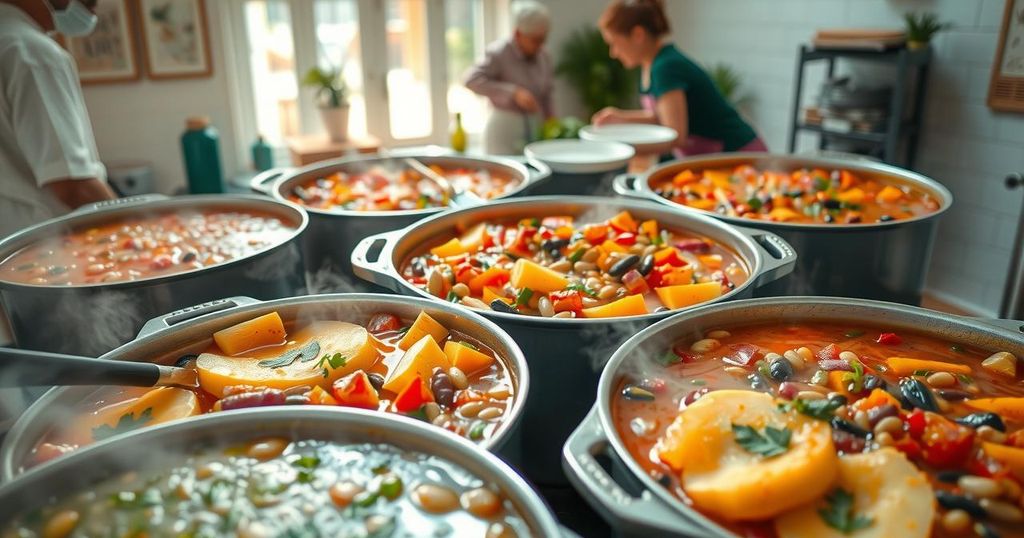Understanding the True Essence of Ramadan: Insights from Afghan Kiwi Muslims
In Auckland, Muslims begin fasting for Ramadan, lasting approximately 14 hours, a change from past practices. The lunar Islamic calendar dictates the start, guided by the sighting of the new moon. The Basir couple shares their experiences from Afghanistan, emphasizing the deeper significance of hardship during Ramadan and the importance of gratitude, fasting, and spiritual connection.
Muslims in Auckland are preparing to commence their first fast of Ramadan, a duration that approximately spans 14 hours, longer than the past two decades. According to the Federation of the Islamic Associations (FIANZ), Ramadan officially began on Sunday. The Islamic calendar, based on the lunar cycle, guides Muslims to start fasting upon sighting the new moon, continuing from sunrise to sunset for 29 or 30 days, culminating in the celebrations of Eid al-Fitr after Ramadan ends.
Each year, Ramadan shifts backward by approximately 10 to 12 days on the Gregorian calendar, leading to future observances in New Zealand’s summer months. For example, it is anticipated that Ramadan may be observed twice in 2030, reflecting this cycle. While fasting hours in New Zealand are not as lengthy as those faced by Muslims in countries with extreme latitudes, such as Iceland or Greenland, local Muslims still find profound tests in their experiences.
Shookria and Enayatullah Basir, who originate from Afghanistan’s Ghazni province, believe the true essence of Ramadan involves enduring hardship. Enayatullah points out that families in Afghanistan experience significant difficulties during this time. “Here, we have a lot of comfortability, and we have plenty of food … You don’t really feel, in my point of view, the true test of Ramadan. We don’t feel that much hunger,” he explains.
In Afghanistan, missing the pre-dawn meal, known as suhoor, was commonplace for families living in rural areas without clocks. Often reliant on roosters to signal dawn, these families would wake up early to prepare for fasting. “The whole Ramadan, during the day, everything was related to that rooster. If the rooster [didn’t make a noise], you had to take your fast without eating anything,” they recount.
Although those in urban settings might fare slightly better during the summer months, the Basir couple asserts that living conditions in rural villages posed a dilemma. They recall a modest pre-dawn meal consisting primarily of yoghurt and bread, as other food options were limited. “I remember we didn’t have meat. We used to have meat once a month … mostly the milk from the sheep,” Shookria shares.
Shookria emphasizes that the essence of Ramadan lies in surviving rather than indulging, presenting a stark contrast to the behaviors exhibited by those with more resources. Ramadan fosters resilience and appreciation for food and circumstances. “It’s a month of patience… You become more grateful for what you have now, and that’s important to do during Ramadan, to be grateful for what you have, not greedy for what you want,” she states.
Beyond fasting, Muslims use Ramadan to bolster their spiritual connection through additional prayers, the recitation of the Qur’an, charitable giving, and seeking forgiveness from others and from Allah. They regard this month as sacred, commemorating the first revelations received by Prophet Muhammad over 1400 years ago. Fasting during Ramadan is one of the Five Pillars of Islam, a requirement for all able adults, excluding children, the elderly, the ill, and pregnant women.
In summary, the experience of Ramadan in Auckland demonstrates the adaptability of cultural practices in response to environmental differences. The Basir couple provides insights into the challenges faced by Afghan families during Ramadan, contrasting them with the relative comforts experienced in New Zealand. Despite these comforts, the fundamental aspects of fasting, spiritual renewal, and gratitude remain central to the observance of this holy month.
Original Source: www.rnz.co.nz



Post Comment